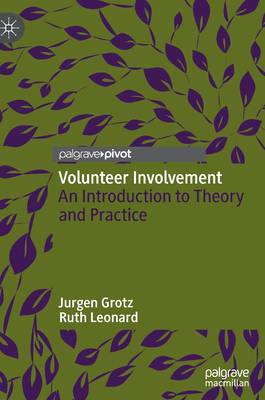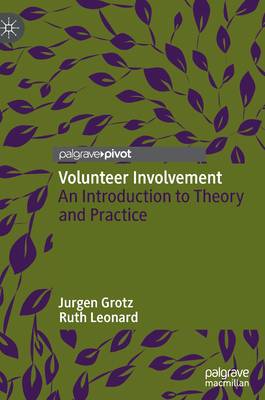
- Retrait gratuit dans votre magasin Club
- 7.000.000 titres dans notre catalogue
- Payer en toute sécurité
- Toujours un magasin près de chez vous
- Retrait gratuit dans votre magasin Club
- 7.000.0000 titres dans notre catalogue
- Payer en toute sécurité
- Toujours un magasin près de chez vous
Volunteer Involvement
An Introduction to Theory and Practice
Jurgen Grotz, Ruth LeonardDescription
This book provides a comprehensive overview of the latest theory and practice for volunteer involvement. It represents a milestone for knowledge of how and why volunteers become involved and will be essential reading for practitioners, policy makers and funders. Offering exercises and examples from practice, it introduces concepts for understanding volunteers' agency and for critically assessing ways in which those who seek to involve volunteers can respond to rapidly changing environments. The authors draw on a combination of theoretical perspectives and practical experiences to develop approaches based on individuals and community strengths and assets, underlining the need for conviviality, respect and enjoyment in volunteer involvement.
Spécifications
Parties prenantes
- Auteur(s) :
- Editeur:
Contenu
- Nombre de pages :
- 170
- Langue:
- Anglais
Caractéristiques
- EAN:
- 9783031192203
- Date de parution :
- 01-12-22
- Format:
- Livre relié
- Format numérique:
- Genaaid
- Dimensions :
- 148 mm x 210 mm
- Poids :
- 390 g

Les avis
Nous publions uniquement les avis qui respectent les conditions requises. Consultez nos conditions pour les avis.






